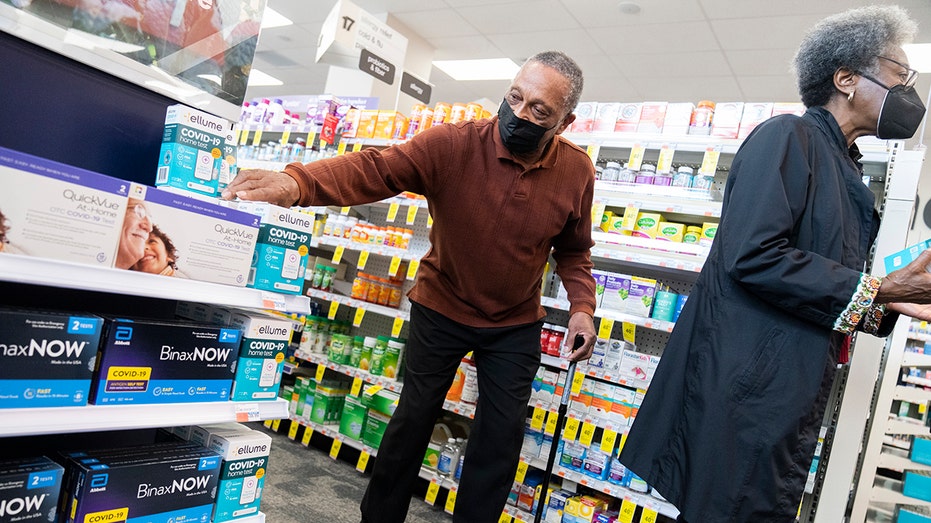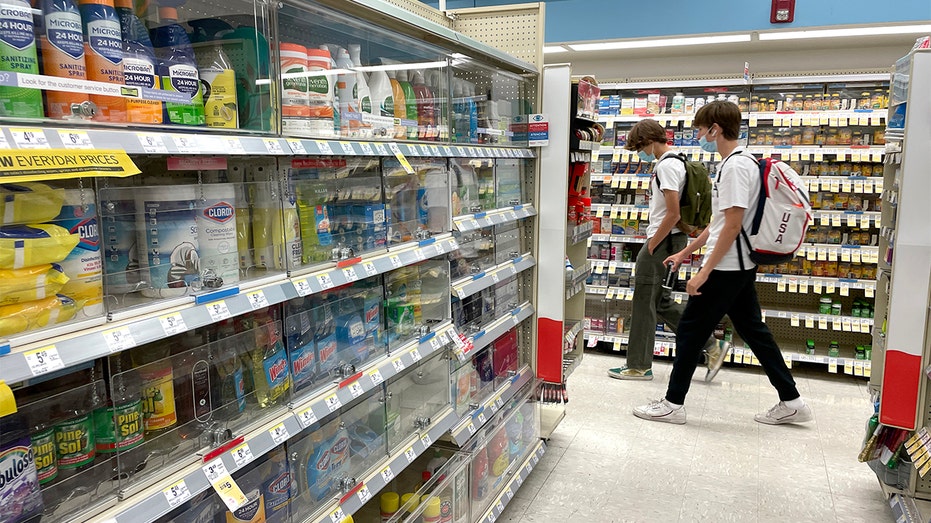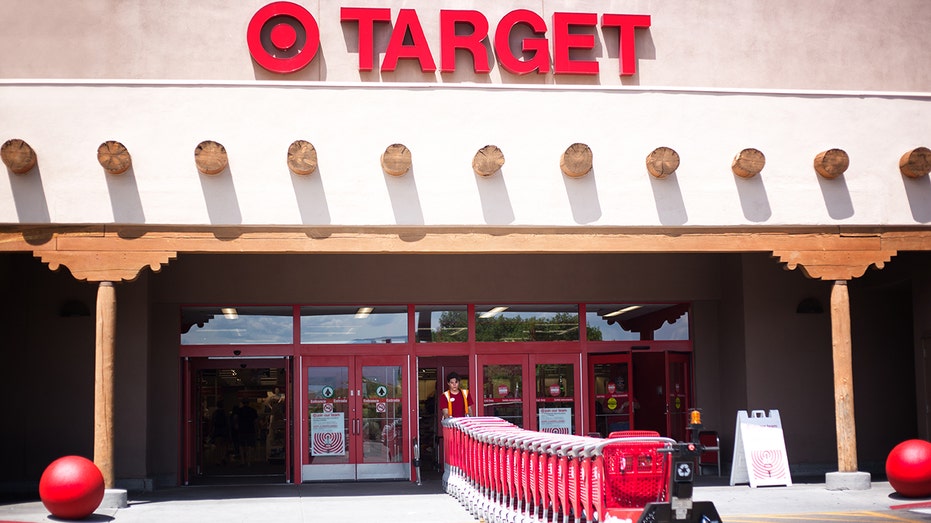Inflation pushes consumers to consider private labels over name brands
CVS says its Brand Products are 20%-40% lower in cost than comparable name brands
Shoppers are reaching for more in-house brands to save money as inflation surged to a new four-decade high in June.
"Inflation on consumer products has opened the door for private labels to gain consumer awareness and engagement due to higher prices and shrunken sizes," Mark Kohlenberg told FOX Business. Kohlenberg is the CEO and founder of luxury men’s footwear and accessories brands Moral Code and Milwaukee Boot Company.
As a result, "it has suddenly enabled consumers that would previously only consider branded products — out of sheer habit or a belief that branded products were better — to now expand their consideration set and now include private label products within their buying patterns," he added.
WHY IS INFLATION STILL SO HIGH, AND WHEN WILL IT START TO COOL?
Gristedes & D'Agostino Supermarkets Chief Operating Officer Joe Parisi told FOX Business that many bigger chains have seen growth in their private labels in recent months as buyers look for more ways to cut back on spending.
"As grocery inflation continues customers are looking to private label versus brand names because they are looking for savings in price," said the head of New York City's largest grocery chain.

Guleford Bobo, 75, picks up free COVID-19 home tests covered by Medicare at a CVS in the Navy Yard neighborhood of Washington, D.C., on Monday, April 4, 2022. (Tom Williams/CQ-Roll Call, Inc via Getty Images) ((Tom Williams/CQ-Roll Call, Inc via Getty Images) / Getty Images)
CVS Health told FOX Business that it has 12 private labels — otherwise called CVS Store Brand products — which are 20%-40% cheaper than competing brands in its store. Some of these labels include CVS Health, Live Better, Gold Emblem, Total Home and Goodline Grooming Co.
| Ticker | Security | Last | Change | Change % |
|---|---|---|---|---|
| CVS | CVS HEALTH CORP. | 78.35 | +2.02 | +2.65% |
According to a CVS spokesperson, these CVS Store Brand products rank number one across the majority of categories and account for just under a quarter of all CVS sales.
The CVS Health line — in particular — "remains the top-selling brand in the front store business at CVS Pharmacy, outselling national brands in most of our healthcare categories," according to the spokesperson.
Rival drugstore chain Walgreens Boots Alliance also saw a boost in its Walgreens branded items.
SEARING-HOT INFLATION DATA OPENS DOOR TO 100-BASIS POINT FED RATE HIKE IN JULY
"Our front-end momentum is bolstered through our owned brand loyalty and omnichannel initiatives," the Illinois-based company said in an earnings report last month.

Customers walk by products locked in security cabinets at a Walgreens store that is set to be closed in the coming weeks on Oct. 13, 2021 in San Francisco. (Justin Sullivan/Getty Images / Getty Images)
Walgreens Chief Merchandising Officer Luke Rauch told FOX Business the company recognizes that the role Walgreens branded items "can play in the current inflationary environment is more important than ever."
The integrated healthcare, pharmacy and retailer also plans to continue focusing on "increasing the breadth and value of our owned brand offering."
| Ticker | Security | Last | Change | Change % |
|---|---|---|---|---|
| WBA | NO DATA AVAILABLE | - | - | - |
JUNE RETAIL SALES CLIMB MORE THAN EXPECTED AS AMERICANS CONFRONT SEARING-HOT INFLATION
Walmart is seeing a similar trend.
"Consumers are feeling inflation pressures as evidenced by an increase in grocery private brand penetration," Walmart CFO Brett Briggs told investors during a recent earnings call in April.
Walmart U.S. President and CEO John Furner told investors that the world's largest retailer by sales saw consumers "trading from brands to private brands" particularly in the deli, lunch meat, bacon and dairy categories.
| Ticker | Security | Last | Change | Change % |
|---|---|---|---|---|
| WMT | WALMART INC. | 131.18 | +4.24 | +3.34% |
| TGT | TARGET CORP. | 115.56 | +4.66 | +4.20% |
Minneapolis-based Target has also been seeing strong growth in its private labels.
CLICK HERE TO READ MORE ON FOX BUSINESS
Target's owned brand portfolio, which consists of more than 45 owned brands, grew by 18% in 2021.
In its most recent earnings report, Target Chief Growth Officer Christina Hennington said the company's brand portfolio "continues to grow faster than total sales, as it has quarter-after-quarter for years now."

A Target employee pulls red shopping carts into the Santa Fe, New Mexico store. (iStock / iStock)
In order to remain competitive, "strong retailers and brands understand that private label can not just mean slapping your name on a generic or commonplace product but instead has to offer the consumer multiple advantages and reasons to buy," according to Kohlenberg.
If private labels continue to deliver quality and value to the consumer over other brand products then "they stand a good chance of sticking and maintaining this customer" for the long term, he added.





















